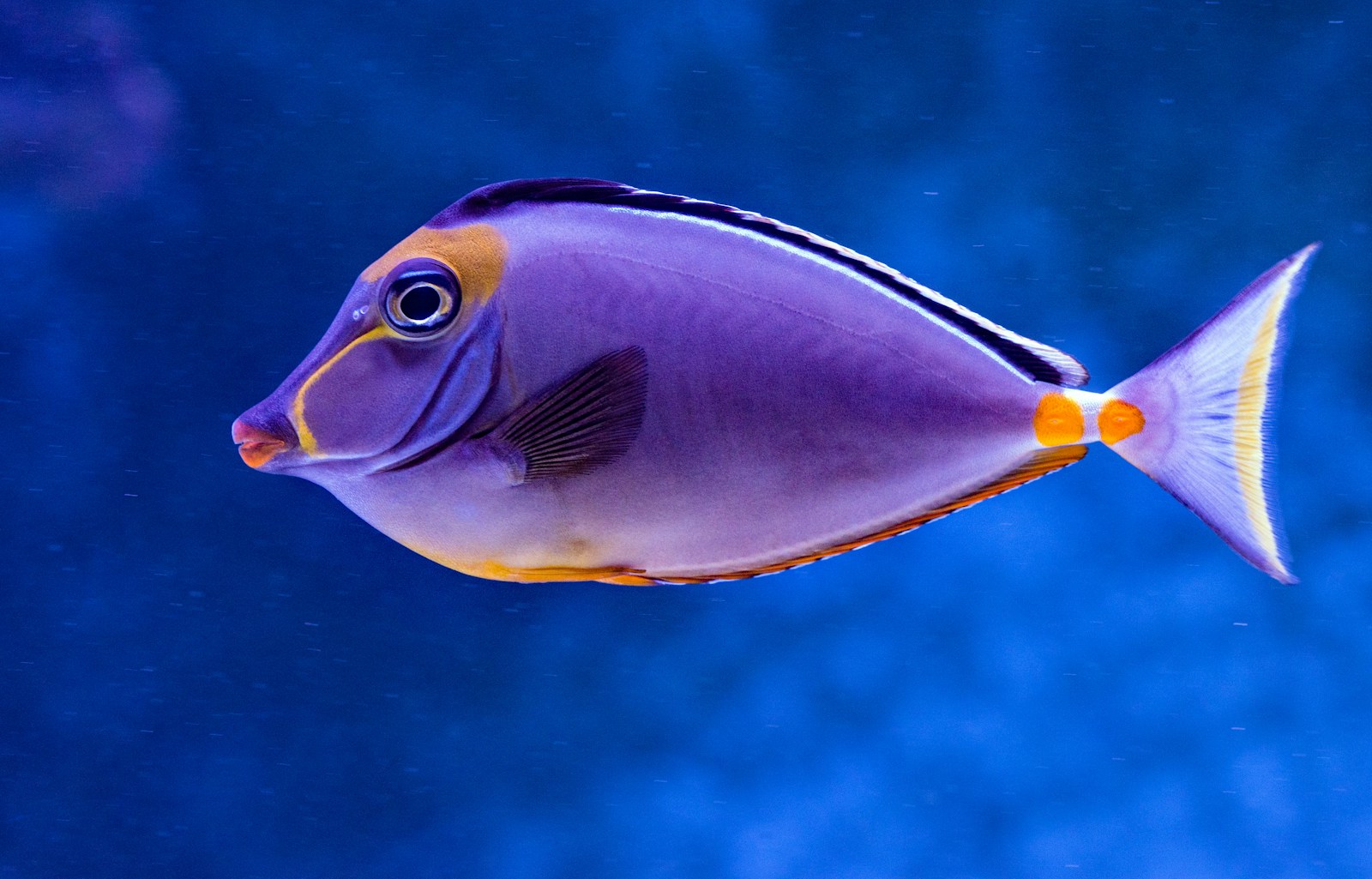
pescado

fish
'Pescado' is the Spanish term for 'fish'. This word is particularly significant in coastal regions where fish is a prevalent part of the local diet.
Example sentences using: pescado
La trama giraba en torno a un pescado.

The plot revolved around a fish.
In this example, the speaker is stating that the plot of the movie they are referring to revolves around a fish. It means that the fish plays a significant role in the movie's narrative.
El pescado en la película estaba muy bien animado.

The fish in the movie was very well animated.
This sentence could be used when speaking about the animation quality of a fish character in a movie. 'Estaba muy bien animado' translates specifically to 'was very well animated'.
Ella compró pescado después de ver la película 'Buscando a Nemo'.

She bought fish after watching the movie 'Finding Nemo'.
This sentence is about a person buying fish after being influenced by the movie 'Finding Nemo'. This happens as movies can sometimes inspire people to act or purchase certain things.
La película sobre pescado fue muy emocionante.

The movie about fish was very exciting.
This describes someone's reaction to a movie that involves fish either as characters or a central theme, stating that they found it exciting.
Vi una película ayer y el pescado era el personaje principal.

I saw a movie yesterday and the fish was the main character.
The speaker is relaying that they watched a movie in which the main character was a fish. This could be relevant to films like 'Finding Nemo' or 'The Little Mermaid'.
El pescado mágico en la película me sorprendió.

The magic fish in the movie surprised me.
This sentence could be used when referring to a magical or mystical fish character or element that surprised the speaker in a movie.
El villano de la película quería pescar todos los peces del océano.

The movie's villain wanted to fish all the fish in the ocean.
The sentence describes the villain's plan in a movie, which is to fish all the fish in the ocean. This could relate to movies where environmental themes are presented.
El pescado en la película parece muy real.

The fish in the movie looks very real.
The speaker is commenting on the realistic appearance of a fish character or a CGI-generated fish in a movie.
El documental mostró la vida de los peces en el mar.

The documentary showed the life of fish in the sea.
This sentence refers to a movie genre that is a documentary where the lives of fish in the sea are portrayed or illustrated.
La película 'El pez dorado' me hizo amar los peces.

The movie 'The Golden Fish' made me love fish.
Here, the speaker talks about how a specific film, 'The Golden Fish', led to them developing a love for fish. This speaks to the transformative power that movies can have on audience perceptions.
Voy a comer pescado para la cena.

I am going to eat fish for dinner.
In this sentence, 'Voy a comer' means 'I am going to eat'. 'Pescado' means fish and 'para la cena' means 'for dinner'. This is a future tense sentence expressing an action that is going to happen.
El pescado está fresco.

The fish is fresh.
In this phrase, 'El pescado' means 'The fish'. 'Está fresco' uses the verb 'estar' which in this case means 'is' and 'fresco' translates as 'fresh'. This sentence is often used at markets or restaurants to describe the quality of the fish.
Me gusta el pescado.

I like fish.
In this statement, 'Me gusta' means 'I like'. 'El pescado' translates as 'the fish'. This sentence is used to express a personal liking or preference.
Este pescado no sabe bien.

This fish does not taste good.
In this statement, 'Este pescado' means 'this fish', 'no sabe bien' means 'does not taste good'. It is used to describe something that doesn't taste good.
El pescado es rico en proteínas.

Fish is rich in protein.
'El pescado es rico en proteínas' translates as 'Fish is rich in protein'. It is a common way of expressing the nutritional value of fish.
Mi pescado favorito es el salmón.

My favorite fish is salmon.
'Mi pescado favorito es el salmón' translates to 'My favorite fish is salmon'. This sentence is used to identify a specific type of fish as a favorite.
Prefiero el pescado a la carne.

I prefer fish to meat.
In this phrase, 'Prefiero' means 'I prefer', 'el pescado' means 'the fish', and 'a la carne' translates to 'to meat'. This sentence is generally used to express food preference.
Cociné pescado para el almuerzo hoy.

I cooked fish for lunch today.
The sentence 'Cociné pescado para el almuerzo hoy' translates into 'I cooked fish for lunch today'. The verb 'cociné' is in past tense, meaning the action has already been completed.
No puedo comer pescado porque soy alérgico.

I can't eat fish because I am allergic.
'No puedo comer pescado porque soy alérgico' translates as 'I can't eat fish because I am allergic'. This is often used by people who have a fish allergy.
¿Es este pescado de agua dulce o salada?

Is this fish from fresh or salt water?
The phrase '¿Es este pescado de agua dulce o salada?' translates into 'Is this fish from fresh or salt water?' It is generally used to inquire about the origin of a certain fish.